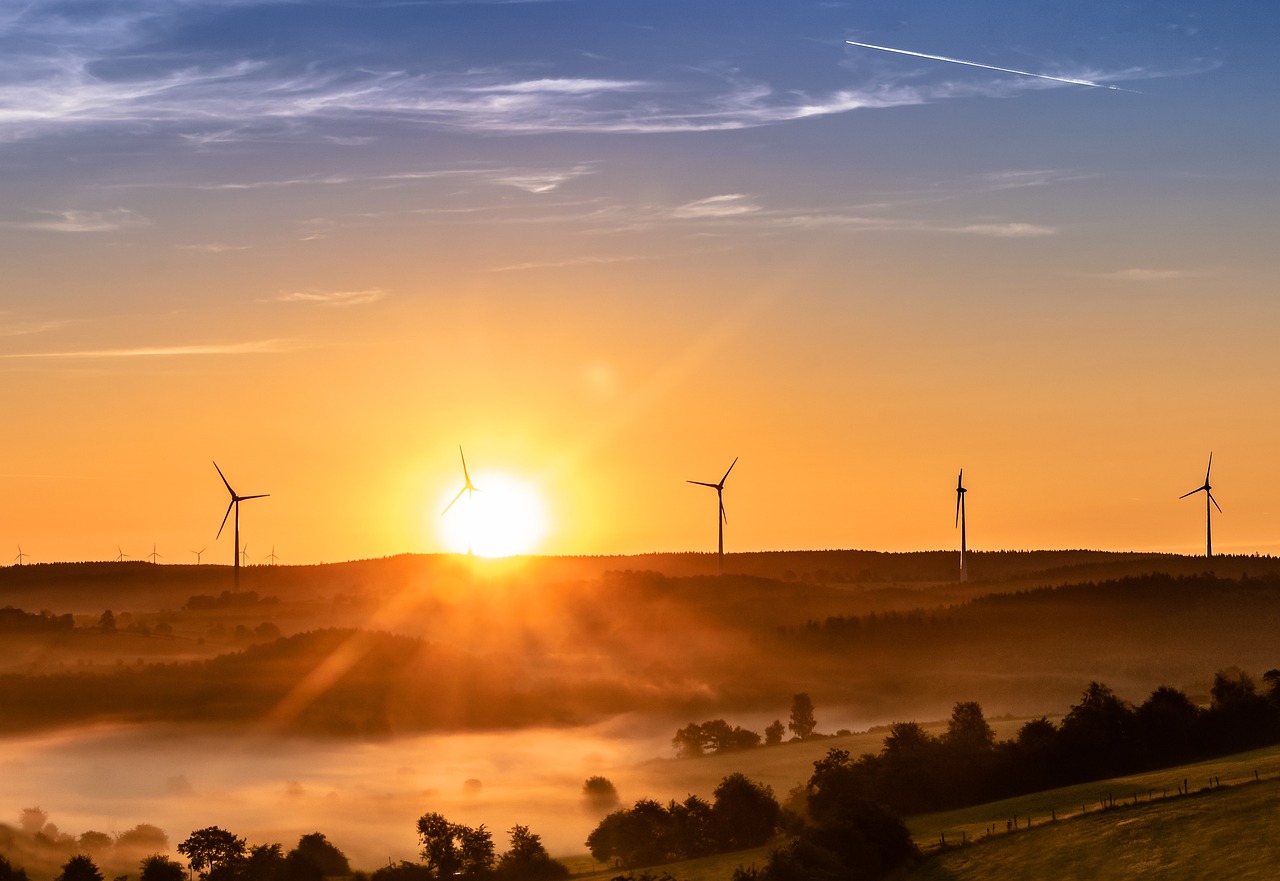Policymakers, business leaders, and innovators gathered in early July in Milan at the Global Energy Transition – GET Congress and Exhibition. The event, supported by NewsEnergy as a media partner, is a global conference and exhibition connecting the low-carbon energy and industrial ecosystems to accelerate the energy transition and deliver measurable change. One of the speakers at this event was Dr Valentina Dedi, Lead Economic Advisor at KBR – an American company that offers scientific, technological, and engineering solutions to governments and companies worldwide. In an exclusive interview for NewsEnergy, Dr Valentina Dedi shared her vision on the main risks/vulnerabilities for green investments, the opportunities and risks generated by the energy transition for governments, the transition through the eyes of a CEO of an oil and gas company, key challenges preventing the expansion of renewable energy projects in Southeast Europe, as well as the elephant in the room in the global energy transition process. „Governments and policymakers are required to act as a beacon in very foggy conditions” and „Energy security and affordability are too important to be compromised„, she says.
Read the full interview for details:
NewsEnergy: How would you see the energy transition through the lens of an investor in green energy?

Dr Valentina Dedi, Lead Economist at KBR (photo credit: KBR)
Dr Valentina Dedi (photo): Over the past few years, there has been substantial political and public pressure to shift to a greener energy system. According to S&P Global Platts, if the targets agreed by the world’s major economies under the Paris Agreement were to be met by 2050, it would mean more than $5 trillion in investment each year between now and 2050. This scale of investment is well beyond what governments can afford, presenting a huge opportunity for private sector engagement too. Also, the current momentum seems to be much better sustained than any other time, providing a fertile ground for investment opportunities.
However, the question then becomes: which green energy investments? So far, we have seen significant capital being directed towards renewable energy, mainly referring to wind and solar. According to IEA, renewable energy, including wind, solar, and biofuels, remained the largest sector in investment terms in 2022. For these technologies, financing has become easier over the years; many projects can now be fully funded through equity by project developers – without the need for external financing. Thanks to a continuous decline in technology costs and advances in efficiency over the past decade, these technologies have matured and are market-ready.
While these technologies are critical to the energy transition, they alone cannot address the full scope of the challenge, and especially in decarbonising hard-to-abate sectors. This is where other technologies such as hydrogen/ammonia and CCUS can contribute, complementing the role of renewable energy projects. However, they also come with significant challenges and risks, making it hard for investors to understand the feasible scale of opportunity.
NewsEnergy: What do you see as the most promising (the future “stars”) decarbonisation technologies and why?
Dr Valentina Dedi: There are several technologies that attract excitement today, which have the potential to drive decarbonisation at a global scale in the years ahead. Capacity additions of renewable energy have been continuously breaking records over the past decade. Technologies such as renewable-based hydrogen, ammonia, CCUS and SAF also have the scope to play a pivotal role, especially in sectors which are harder to electrify, such as iron and steel, cement, chemicals, aviation and shipping, among others.
However, there is no one-size-fits-all solution. The transition pathway and the development of the different technologies and decarbonisation solutions will be based on each country’s own unique energy resource state, in tandem with their economic, social and environmental circumstances and needs.
NewsEnergy: What are the main risks / vulnerabilities for the green investments and why?
Dr Valentina Dedi: Most of the technologies discussed today are not new technologies. See, for instance, hydrogen – it was discovered in 1671, with the concept of a hydrogen economy being first discussed in 1970. Where the challenge lies with these technologies is in their large-scale deployment which at the same time must be commercially viable.
Today, there are limited applications of large-scale deployment, and, thus, their business models are widely untested. This implies an uncharted path with several uncertainties and risks for investors, including high capital costs, potential technology failures, and cost overruns, among others.
Another significant risk factor is the lack of clarity with respect to the demand outlook, which is a key cause for projects not reaching financial investment decision. Here, hydrogen is a very good example. Despite strong policy support and momentum, hydrogen projects received the least financial commitment in 2022, accounting for a mere 0.1% of global energy investments. Also, from the announced projects by 2030, only 4% have reached financial investment, with the rest projects being at the very early stages or undergoing a feasibility study, according to IEA.
Another challenge is how to scale up the infrastructure across the entire value chain. Meeting global carbon reduction targets clearly requires massive up-scaling of clean energy value chains. It is interesting to note that most of the investments or project announcements tend to focus more on production and less on midstream or downstream. Even for renewable energy, which has attracted the bulk of investment among green technologies, most of the projects have focused on power generation assets, with investment in transmission and distribution increasing by a mere 1% per annum since 2010 (based on IEA data).
NewsEnergy: How would you see the energy transition through the lens of a CEO of an oil & gas company? What are the main trends in this industry on the decarbonisation path? What low-carbon fuels do you see as the most promising?
Dr Valentina Dedi: Sustainability in the long term needs to be balanced with energy security and affordability. For this reason, the oil and gas industry will be key to the energy transition and will continue to be essential in helping drive global economic growth, and especially the economic prosperity of the developing world. So, the shift towards cleaner energy is about decarbonising existing assets and sectors, as well as developing green technologies.
But we are definitely seeing traditional energy companies changing their operations and logistics strategies, in order to meet cleaner energy goals. There is a shift towards renewable power generation and electrolyser facilities, producing low-emissions products and services, such as electricity, biofuels/SAF and hydrogen.
These trends are seeing energy producers undertake a careful balancing act between maintaining current profitability and ensuring future sustainability. Raising investment for oil and gas projects is getting more difficult as banks and asset managers shift away from financing fossil fuels. However, this effect does vary between different parts of the world – European investors are generally stricter compared to their North American counterparts. At the same time, decarbonisation comes with significant costs; and shareholders never like to see a drop in share value. At the moment, there are regions where policies, regulations and financial incentives are not in place to deter producers of fuel or power with higher carbon footprints, and this is a problem to be solved.
NewsEnergy: What opportunities and risks generated by the energy transition do you see for governments, if you would see the transition though their lens?

Sursa foto: Pixabay.com
Dr Valentina Dedi: A growing number of countries and jurisdictions have committed to ambitious long-term climate goals, introducing decarbonisation policies and pledging to a net-zero economy by mid-century. In many cases, it felt governments were just going into a race of who is going to make the announcement faster or who is going to commit to a faster delivery. However, this is a huge task they have committed to; we can easily realise that if we just think of the Covid-19 pandemic, where the whole world had to come to a halt in order to see a reduction of global emissions of just 6% year-on-year. And the task becomes even harder for the governments that have portrayed themselves as leaders in today’s energy transition race.
Given that today’s energy transition is not driven by economics, but by a change in social preferences, we are in a very unique position, where governments and policymakers are required to act as a beacon in very foggy conditions. They must not only set the national vision, but also the direction and the implementation strategy. They need to set clear, targeted policies and a very robust and consistent framework to create the credibility and revenue predictability required to drive investment, but also come up with all sorts of “navigational” mechanisms which are critical to make these technologies cost competitive. That entails huge challenges and risks, including the challenge of meeting the ambitious climate goals while maintaining energy security and affordability.
NewsEnergy: With the variability in economic development across South-East Europe, how do you suggest balancing economic growth with stringent decarbonisation targets?
Dr Valentina Dedi: South-East Europe has significant renewable energy potential, but only a small part of that has been deployed. As a result, the region remains heavily dependent on fossil fuel sources. The deployment of a diversified energy mix – which will include more renewable sources – will be critical for these economies to bolster their energy security. The latter is expected to be a key factor in sustainably meeting energy demand growth and enabling economic growth in the years ahead.
Renewable energy technologies can also contribute to the regional industrial development, as well as add to greener transportation and residential sectors. While these sectors have been significant drivers of energy consumption, the potential for renewable deployment across these industries remains largely untapped.
Undoubtedly, the transition from fossil fuels to clean energy will involve important trade-offs between economics and climate over the shorter to medium term. Establishing energy security, sustainability, affordability and export competitiveness at the same time will be key challenges for the region to address. However, over the longer run, they will only help these economies grow sustainably.
NewsEnergy: From your experience, what are some of the key challenges hindering the scaling up of renewable energy projects in South-East Europe, and how can these be overcome?
Dr Valentina Dedi: Despite all this interest for the different green energy technologies, what we keep seeing is a disproportionate flow of investments – not only towards those technologies that are more mature – but also towards those markets that are perceived as lower risk. This can justify why, despite the region’s competitive advantage when it comes to renewable energy sources, South-East Europe has been in a tight spot in terms of investment interest, especially when compared to global trends.
However, participation of private investors and project developers will be crucial for the deployment of clean energy projects in the region, and this is where governments’ contribution will be crucial. Their primary focus should be on developing policies, regulations, infrastructure and incentives which de-risk investments and attract investors. Designing holistic energy roadmaps which provide clarity and visibility on national targets and how these are going to be achieved will be important. Also, a thorough technical and economic assessment of the renewable resource potential can help governments set achievable targets and understand the areas that should be prioritised for development. All these steps will, in turn, provide investors with the right foresight and motivation to participate in regional developments.
NewsEnergy: Looking ahead, what are your predictions for the next decade regarding advancements in decarbonisation technologies and their impact on energy markets (in South-East Europe too)?
Dr Valentina Dedi: The shifts in policies and preferences, in tandem with rapid technological developments are expected to lead to a different, more diversified and sustainable energy system over the next 2-3 decades. However, the next decade will be crucial in setting the pace for this transformation.
We should expect policy complexities, geopolitical instability and market uncertainties to affect the feasibility of some energy transition projects and their timelines. Energy security and affordability are also too important to be compromised. The latter was made particularly prominent in the energy crisis following the Russian invasion of Ukraine. During that period, many governments had to take a step back in their ambitious climate change agendas. Sweden, the first nation to set a milestone net-zero goal, is now expected to miss its legislated climate targets due to a tough economic climate. The UK government has also announced that it will continue to back the UK’s oil and gas industry to foster the country’s energy security and help lower energy bills.
NewsEnergy: As the Vice President of Access for Women in Energy, how do you perceive the role of gender diversity in shaping the future of green investments and technologies?
Dr Valentina Dedi: The energy industry is undergoing unprecedented changes due to ambitious climate commitments and the transition to a low-carbon economy. In this context, creating an equitable environment for women and fostering gender parity in leadership positions is key for businesses and governments aiming to deliver a sustainable and inclusive energy transition.
I firmly believe that diverse perspectives are essential for driving innovation in our rapidly evolving sector. By promoting gender diversity, we can tap into a broader talent pool, which is crucial for developing and implementing new green technologies and attracting investments in sustainable energy solutions.
At Access for Women in Energy, we are committed to raising awareness and promoting the development of women in the energy industry globally. We do that through several initiatives, including mentoring programmes, leadership training, awareness campaigns, seminars and roundtable discussions. By fostering an inclusive environment, we are not only addressing gender equality but also enhancing our capacity to innovate and tackle the complex challenges of energy transition.
NewsEnergy: And the last question, please: in this global energy transition, what is the elephant in the room and, maybe, what are the baby elephants?
Dr Valentina Dedi: The elephant in the room is all about achieving the net-zero targets. There is an increasing pressure to move away from today’s state of energy supply, which relies on fossil fuels for more than 80%, to a new state of energy provision driven by greener sources. That, definitely, cannot happen overnight.
The global nature of any potential solution and the speed required to implement it requires an unprecedented level of determination from policy makers, businesses and the general population. This challenge is further complicated by the need to develop infrastructure across the entire value chain. From export and import facilities to transportation, storage, and distribution networks, the required investments are significant and often involve long lead times. These factors combined can easily push back the net-zero timeline, highlighting the urgency of coordinated global action.
Demand is another critical parameter, affecting how quickly the energy transition can be achieved. The offtake market remains at a nascent stage for most of the technologies that have attracted the most excitement today as they are unable to compete on price with conventional fuels. Addressing this challenge requires the implementation of clear governance and regulatory frameworks as well as incentives which can make them more competitive.
For sure, the pathway to a greener future won’t be a straight line. However, with collaboration and commitment from all stakeholders, we can create a more sustainable and prosperous world for generations to come.
***
SHORT BIO Dr Valentina Dedi, Lead Economic Advisor, KBR
Dr Valentina Dedi is an economist specialising in global oil and gas markets and energy transition projects. She serves within the international consulting business of KBR as their Lead Economic Advisor.
Over the years, she has worked for different stakeholders globally, including governments, development banks, international corporations, conglomerates, oil and energy companies, and national oil companies, among others.
Valentina is the Vice President of Access for Women in Energy and of the Greek Energy Forum. She has also been involved with academic institutions, teaching at the University of Surrey and London Bayes Business School in the UK, as well as The American College of Greece and University of Ioannina in Greece.
About KBR
KBR delivers science, technology and engineering solutions to governments and companies around the world. KBR employs approximately 28,000 people performing diverse, complex and mission-critical roles in 34 countries.
KBR works with its customers across the globe to provide technology, value-added services, and long-term operations and maintenance services to ensure consistent delivery with results.
- Read the Romanian version of the article HERE.

